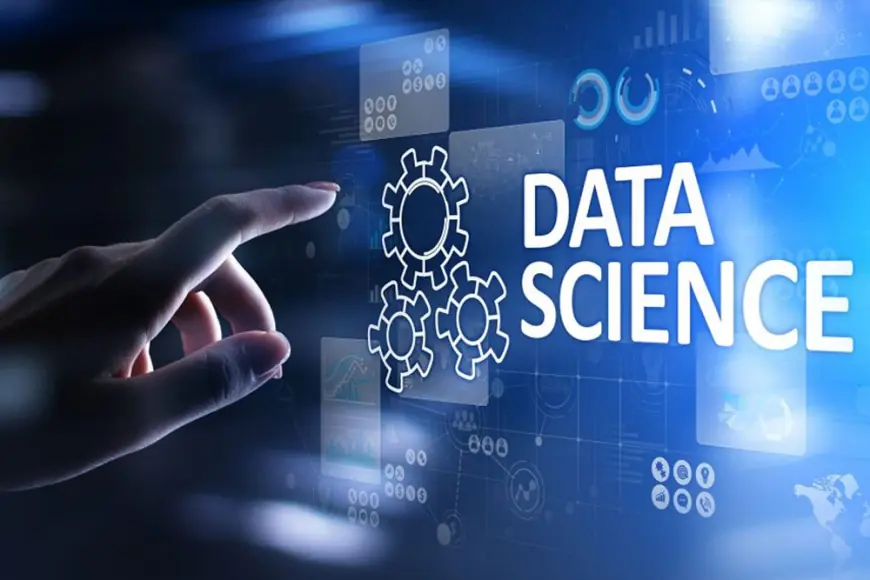The Future of Data Science Education: Trends and Innovations
Explore the future of data science education with AI, ethical data practices, and flexible learning in George College's innovative data science programs.

In today’s rapidly evolving tech landscape, the demand for skilled professionals in data science is higher than ever. A data science program serves as the foundation for aspiring analysts, engineers, and AI specialists to build expertise in this field. Institutions like George College are at the forefront of shaping the next generation of data scientists by integrating emerging trends and innovations into their curriculum.
The Evolution of Data Science Education
Traditionally, data science was taught as part of broader computer science or statistics programs. However, the increasing reliance on big data, artificial intelligence, and machine learning has driven institutions to offer specialized data science programs that cater to industry demands. These programs now emphasize hands-on learning, interdisciplinary approaches, and real-world applications.
Emerging Trends in Data Science Education
1. AI and Machine Learning Integration
Artificial intelligence and machine learning are no longer separate disciplines but essential components of data science. Modern programs incorporate AI-driven methodologies, allowing students to work with deep learning models, neural networks, and predictive analytics.
2. Focus on Ethical Data Science
As data privacy concerns grow, educational institutions emphasize ethical considerations in data science. Future professionals are trained to handle data responsibly, ensuring compliance with regulations such as GDPR and CCPA while mitigating biases in AI models.
3. Project-Based Learning and Capstone Projects
Employers seek candidates with practical experience. Today’s best data science programs integrate real-world projects, industry collaborations, and capstone projects to equip students with problem-solving skills and a strong portfolio before entering the workforce.
4. Incorporation of Cloud Computing and Big Data Technologies
With companies leveraging cloud-based analytics, data science education now includes platforms like AWS, Google Cloud, and Microsoft Azure. Students learn how to process large datasets efficiently and work in cloud-based environments, making them industry-ready.
5. Customized and Flexible Learning Paths
Online education and hybrid learning models have gained traction, allowing students to tailor their learning experience. Many institutions offer flexible data science programs that accommodate working professionals through part-time, online, and micro-credential options.
Key Innovations Shaping Data Science Programs
1. Gamification in Learning
Interactive simulations, coding challenges, and AI-powered tutors make learning data science more engaging. Platforms use gamification to reinforce coding skills, statistical modeling, and data visualization techniques.
2. Industry Partnerships and Internship Opportunities
Colleges and universities collaborate with leading tech firms to offer internships and mentorship programs. These partnerships expose students to real-world applications of data science and enhance employability.
3. No-Code and Low-Code Tools for Data Science
The rise of no-code and low-code platforms enables students with non-technical backgrounds to enter the data science field. These tools help learners build AI models, automate workflows, and analyze data with minimal coding experience.
4. Blockchain for Data Security
Data security is a growing concern, and blockchain technology is being integrated into data science curricula. Understanding decentralized data storage, cryptographic security, and blockchain-based analytics gives future data scientists a competitive edge.
5. Personalized Learning with AI
Adaptive learning platforms use AI to tailor coursework based on a student’s progress and strengths. This innovation ensures efficient learning and mastery of complex data science concepts.
Conclusion
As technology evolves, so will data science education. Institutions like George College continue to adapt, ensuring students receive cutting-edge training that aligns with industry trends. The future of data science education lies in practical learning, AI integration, and ethical considerations, all of which will shape the next generation of data professionals.
What's Your Reaction?
 Like
0
Like
0
 Dislike
0
Dislike
0
 Love
0
Love
0
 Funny
0
Funny
0
 Angry
0
Angry
0
 Sad
0
Sad
0
 Wow
0
Wow
0
















































